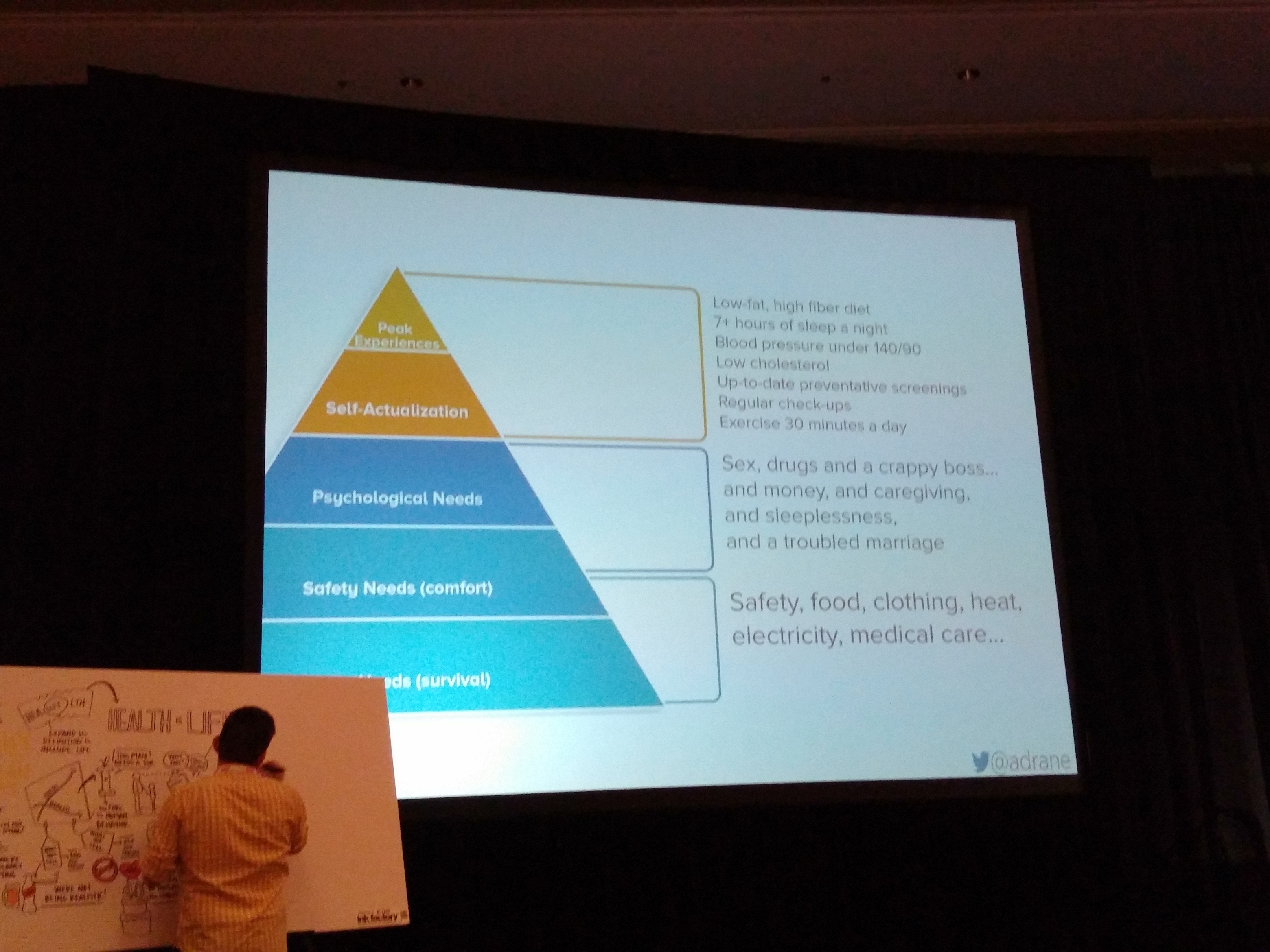I am out at the 4th Annual Health & Benefits Leadership Conference for the next few days and will (if plans don't get derailed because, well, Vegas), be sharing some ideas and highlights from the event, including at least one HR Happy Hour Show from the event.
The opening keynote at the show was given by Alexandra Drane, Co-Founder of Eliza Corp and was titled Mentioning the Unmentionables: Is 'Life' the Missing Link?', an examination of where health and wellness approaches have possibly been misaligned with the needs, desires, and actual, practical situations and lives of the people the healthcare industry is trying to serve.
Let's unpack that a little bit by referring to a chart we have all seen a thousand times, Maslow's hierarchy, and one that Ms. Drane referred to several times during her talk. Take a look at my (slightly out of focus) pic of the chart below, and then some FREE comments from me on the key points of the talk after that. Note: the person on the lower right of the pic is an artist doing a sketch of the talk in real time - really pretty cool!

Alexandra's primary message on where health and wellness initiatives have gone wrong is in that so many of the efforts and outreach have been focused on individual and employee behavior modification that impact and reside at the very peak of the self-actualization pyramid - ignoring the fact that many, if not most people are wrestling with life issues much further down.
We (or our employers), bug people to exercise more frequently, to eat healthier, to make sure they are up to date on all preventive medical screenings, etc., but often do not even attempt to address the myriad of issues that would prevent people from even thinking about doing more exercise or the other things that happy, secure people can spend time on.
These are very basic, and fundamental issues and challenges like elder or child care, financial challenges and troubles, divorce, lack of intimacy, or even something as elementary as loneliness or disconnection from people.
These issues, she argued, are the more important drivers that lead towards negative health outcomes that manifest in 'real' diseases like diabetes, alcoholism, heart disease, hypertension, and many more. And trying to motivate people into behavior changes that might lead to say a reduced risk of diabetes will not be effective if they are completely stressed out with family or personal crises that dominate their ability to cope.
Health care providers spend so much time and effort on 'real' diseases but not enough time on 'life sucks' disease. @adrane #benefitsconf
— Steve Boese (@SteveBoese) March 30, 2016
Until we are able to meet people where they are, many if not most of them dealing with tremendous pressures, stress, and personal challenges in their real lives, will we be able to better provide tools, resources, support, and empathy needed to try and move them to where we want (and hope) they can be - as people who can actually take the time to jog for 45 minutes a day, and spend an extra hour at home each night preparing healthy meals.
It was a really important message I think, and one we'd all be wise to remember.
People are really complex. Life can really suck sometimes. And the combination of the two makes trying to drive behavior change much, much more than just suggesting they choose a salad instead of a Big Mac.
Thanks to Alexandra Drane for such an interesting and compelling talk this morning.